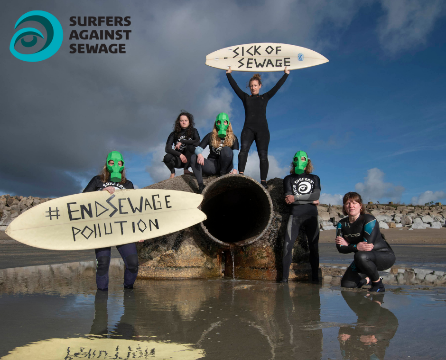This week one of the most iconic symbols in the charity sector went green, when the Royal British Legion launched a plastic-free poppy for the first time.
Made using renewable fibres, half of which has been recovered from coffee cup production waste, it will be available from this October for its annual Poppy Appeal for armed services personnel and veterans.
The plastic free poppy has been in development for the last three years and is part of a commitment by the charity to eliminate single use plastic.
“We looked at its carbon footprint and factors like how much water and resources go into making it, in what’s called a Life Cycle Assessment,” said Professor Paola Lettieri, from University College London, which has been involved in the production.
“By replacing the single-use plastic with a paper-based design, and increasing the amount of recycled paper used, UCL found that the new poppy design has a 40% smaller carbon footprint and a similar reduction in its overall impact on the environment.”
Poppy Appeal director Andy Taylor-White added: “We are very proud to introduce the plastic-free poppy that will not only enable people to support our Armed Forces community but also continues the RBL’s commitment to sustainability.”
This latest initiative by the Royal British Legion is part of a wave of activity taking place across the charity sector to improve their environmental credentials.
Such action is needed as evidence has emerged that the public is losing faith in charities’ ability to tackle climate change.
Analysis by consultancy nfpResearch published in February found that the public believes that governments and corporations have a larger role to play in environmental action than the charity sector.
Here we look at some of the other ways charities can also help the planet.
Making data storage greener
Many charities are already a long way down the road to digitising their record keeping and data. While this helps the environment by cutting down on paper and office space to store records, this shift to embracing technology also comes at a cost.
According to the International Energy Agency data centres that are being used by charities consume around 1% of all global electricity demand. They also contribute 0.3% of all global emissions, a figure that could reach 14% by 2040 with increased computer and digital storage use.
Charities can help limit this impact on the climate by choosing storage providers that have adopted environmentally friendly techniques, including cooling systems that use less energy. This is important as around 40% of data centre energy is used to cool down technology.
Questions charities should ask their providers include how much energy is consumed at centres, is any unused space using energy and how much renewable energy, using wind, solar and hydropower is used to power centres?
Charities can also look to limit the amount of data they use, regularly asking whether data needs to be stored. For example, this may be due to regulatory or financial reporting reasons, and can be removed once deadlines have passed. Avoiding the duplication of data is also key.
Recycling e-waste
Recycling policies already cover paper and other recyclable materials. Charities are advised to ensure this focuses strongly on their electronic waste, including batteries, computers, monitors, and phones.
Figures from the Environmental Audit Committee show that the UK in 2020 generated the second highest amount of e-waste. Only Norway dumps more, the figures show.
Since 2021 the Electrical Retailer Take-back rules have been in force. When you buy a new electrical product the store will take back your old appliance. This is even if you did not buy the device from the shop you brought it into.
The scheme was extended last to include online-only retailers and applies to “anything with a plug, battery or cable that can be recycled and reused”, according to the Recycle Your Electricals Campaign.
Charities can also dispose of technology in other environmentally friendly ways, such as through council run household waste recycling centres. Some local authorities also run community drop off points or offer door to door collections. The Recycle Your Electricals campaign has an online Recycling Locator to find the nearest centre.
In addition, retailer Ikea also takes waste batteries free of charge and recycling centres can also take unwanted leads and chargers.
Donating
Charites can also pass on their unwanted equipment to other good causes and disadvantaged communities, rather than use landfill. There are several organisations that are supporting good causes through repairing and refurbishing old equipment and then donating them to charities and communities.
This includes Computers for Charity, which wipes data, upgrades equipment, and donates free of charge to other charities. It stresses that 80% of a computer’s carbon footprint is in its production. Every upgraded laptop saves the planet from 150kg of CO2 emissions and each refurbished desktop saves 250kg of CO2, it says. /
Reuse Network is another, with its member organisations donating tech to low-income families. It has saved 98,935 tonnes of CO2 waste and 92,53 tonnes of waste that would have ended up on landfill.
Elsewhere Warrington based WeeeCharity collects donated technology from across the UK that can be either reused, donated or resold.
Seek out funding
While donating and recycling are cost effective ways to help the planet, other measures may cost more, such as insulating properties, supporting communities and investing in green power, such as solar panels.
With the march towards zero carbon speeding up across all organisations in 2023, there are several major funding streams charities can access to implement green measures.
In March Chancellor of the Exchequer Jeremy Hunt announced £100 worth of funding for charities in his spring budget. This includes a focus on charities to meet the cost-of-living crisis as well as “providing investment in energy efficiency measures”.
Charities minister Stuart Andrew confirmed this week that around a quarter of the funding will be available over the next two years “to increase the energy efficiency and sustainability of charities and community organisations”.
He added: “Work is underway to finalise the delivery, timings and eligibility criteria”.
This year 178 environmental and conservation charities are set to benefit from the Green Match Fund campaign, which takes place from 22 to 29 April and is being organised by match funding platform Big Give and the Environmental Funders Network.
Charities looking to fund environmental projects that benefit the planet are being urged to apply in future years for match funding. It is hoped that £4m will be raised for participating charities taking part in the event, which is now in its third year.
Ready to DOUBLE your impact? Starting April 20th at noon, donate to any green charity and we'll match your donation. https://t.co/0syjodCk6c
— Big Give (@BigGive) April 13, 2023
To mark the one-week countdown to #GreenMatchFund, hear from wildlife presenter and doubly-excellent conservationist, @MeganMcCubbin. 💚 . pic.twitter.com/qX5AQsFhTr
Another major funding pot is the National Lottery Community Fund’s Climate Action Fund.
This sees the funder offer £100m over the next decade to reduce communities’ carbon footprint and tackle climate change.
To date it has awarded almost £50m to more than 55 projects. It currently has two strands for funding.
The first, called climate and nature, closes to new applications on 30 June and is looking to fund projects that encourage community led climate action by focusing on the link between nature and climate.
The second, called climate and energy, is offering up to £1.5m to between eight to 12 projects that help communities to use energy more efficiently. The deadline for this funding strand is December 2023.













Recent Stories